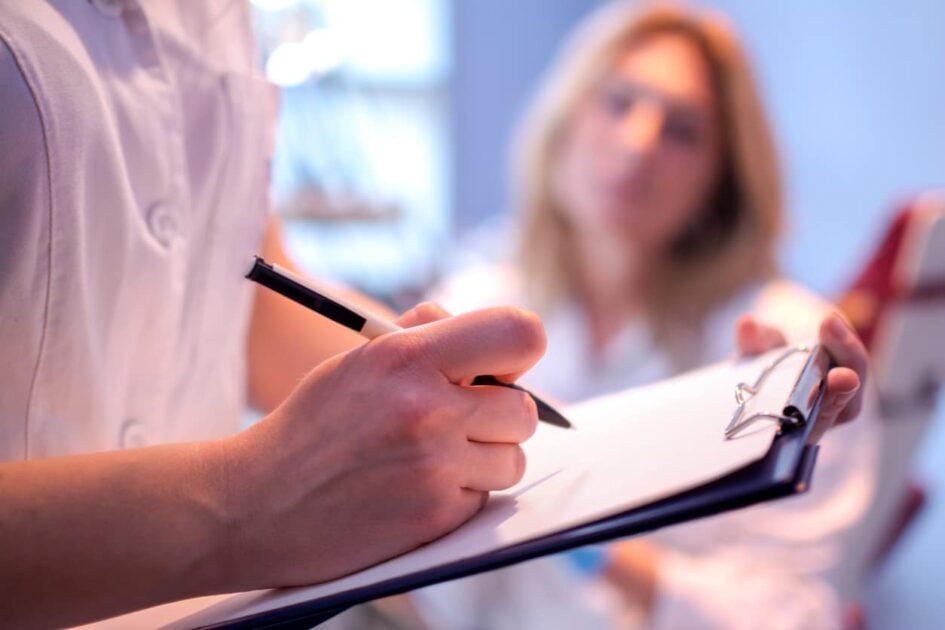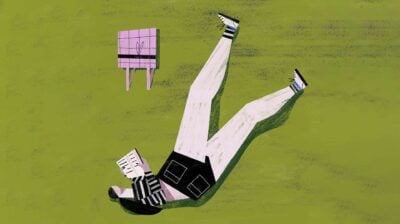What happens when you attend A&E for self harm

If you or someone you know has self harmed in a way that has cause an injury that requires immediate medical assistance, attend your local Accident and Emergency department (A&E) immediately. A&E provides services 24 hours a day, 365 days a year.
It is important to know that A&E services treat people with the most severe injuries/illnesses first, and that you could spend hours waiting to be seen (But if you have hurt yourself badly and need urgent medical attention be sure to let the person know at the reception desk when you arrive).
Finding the closest A&E
You can find the nearest A&E by searching on google. Most hospitals have an A&E, but not all do.
If it’s an emergency, dial 999 for immediate assistance. It might help to bring a friend or family member for support. If you don’t have a family or friend to accompany you, ring a taxi and they should know where your local A&E department is.
What to expect at an A&E
A&E’s can be quite hectic and this may be difficult to cope with if you are in a mental health crisis.
When you first arrive, you will go through three steps before getting treatment.
1. Register
You will be asked a few questions such as: name, address, reasons for visit. If you don’t feel comfortable explaining why you are visiting, simply tell them that you have a mental health emergency.
2. A nurse/doctor will assess you
A nurse or doctor will assess you to determine what further action should be taken. This part of the visit is called the triage; the aim of triage is to allow people with the most severe injuries and conditions to be looked after first.
A list of questions the nurse or doctor might ask when assessing you are things such as:
- How you self harm?
- Where you self harm?
- When did you start self-harming?
- What makes you want to self-harm?
- They may also ask to see your injuries to assess any damage
- They may ask you if you are suicidal
3. Treatment
Following your initial assessment, a nurse will decide how to treat you. They might refer you to a doctor or psychiatrist on call for further treatment.
Is there a fee for attending A&E?
If you use accident and emergency services without being referred there by a GP, there is a charge of €100. There is no charge if you are referred by a GP (bring your referral letter with you). If you have a medical card then there will be no charge.
What should I say to a nurse/doctor at the A&E?
Talking about your mental health can be difficult, but it’s important to explain to the nurse or doctor exactly how you’re feeling. Don’t be afraid to be honest with them, their job is to help you feel better. You can bring along a friend or family member to help explain how you’re feeling if that would make you feel more comfortable.
We’ve put together a few tips to help you get the best from your visit.
- The nurse/doctor is used to dealing with emergency situations all the time. They will be able to help you if you tell them how you’re feeling.
- Try not to be embarrassed when talking to the nurse or doctor, they’ve seen it all before.
- It’s important that you are as honest as you can be, even if you are nervous about letting someone know how you have been.
- Let them know if you’re finding it difficult to talk about the way you feel. This will help them understand and they may be able to prompt you.
- Explain to them that you have been self-harming and that you would like help and support. If you are suicidal, you must let them know so they can give you the most appropriate treatment.
Treatments for self harm
If you have cut yourself your doctor will ask to see the wounds so they can assess your injuries. They will clean the wound and see how deep the cuts are. If necessary they may dress the wound or if it is deep enough, apply stitches. If you are given stitches you will be given a local anaesthetic to numb the area beforehand. If the cuts are really deep and you have done damage to muscle, ligaments or nerves you may need to be referred to a specialist for an operation.
In the case of an overdose
- If you have overdosed, ring an ambulance straight away. It is important that you tell them exactly what you have taken, when you have taken it and how much.
- If you still have the packaging, bring that with you.
- If you have got a lift to a hospital from a friend/family member or taxi driver it is important that you report to reception straight away and tell them it’s an emergency and that you have taken an overdose.
- You will be seen as soon as a doctor is free. You may have to answer a lot of questions about exactly what you have taken, when you have taken it and how much.
- You may be given an unpleasant charcoal like liquid to drink, which will prevent your stomach from absorbing the poisons you have taken.
- You will be given blood tests to check the levels of the medications you have taken and that everything is ok.
- You may be kept in hospital for observation for up to 12- 24 hours.
- You may be assessed by the psychiatrist on call who will ask you lots of questions about how you’ve been feeling and what caused you to take an overdose. If the psychiatrist is concerned that you are at risk to your own safety they may arrange to have you admitted to a psychiatric ward if there is a bed available.
Even if going to A&E sounds like a terrifying experience, it’s important that you do attend or
bring the person in distress so that they can be seen to a get the appropriate help before any
major damages occurs.






